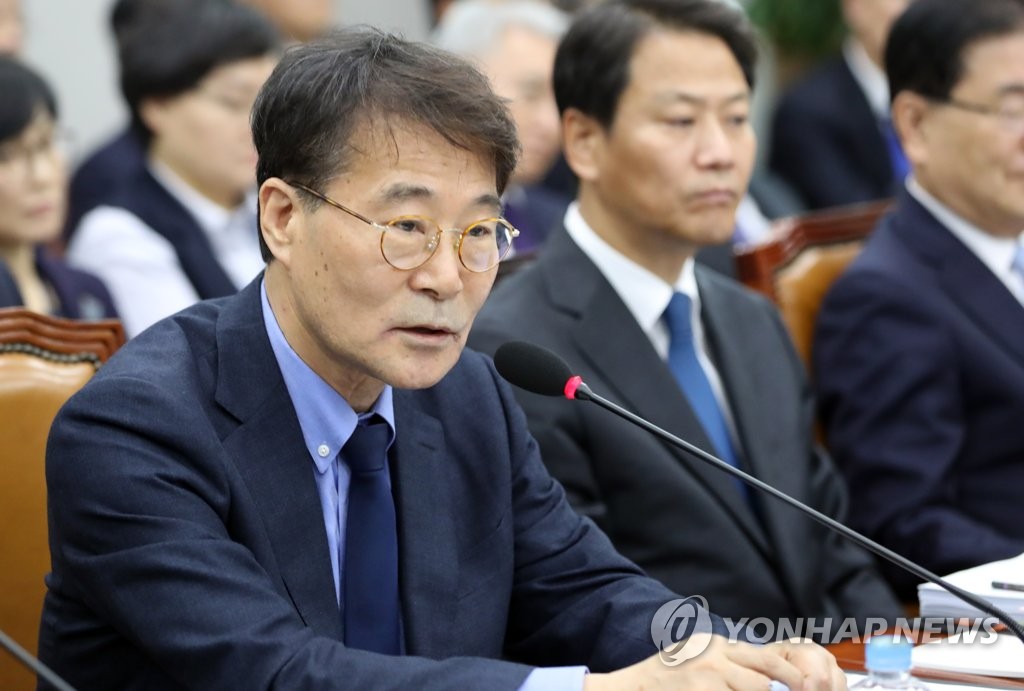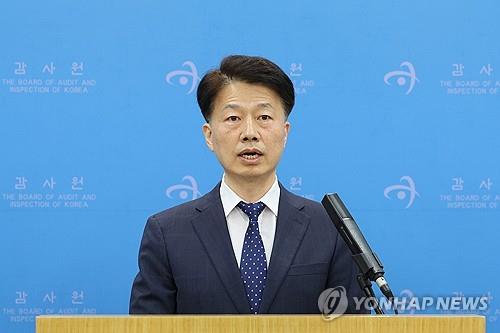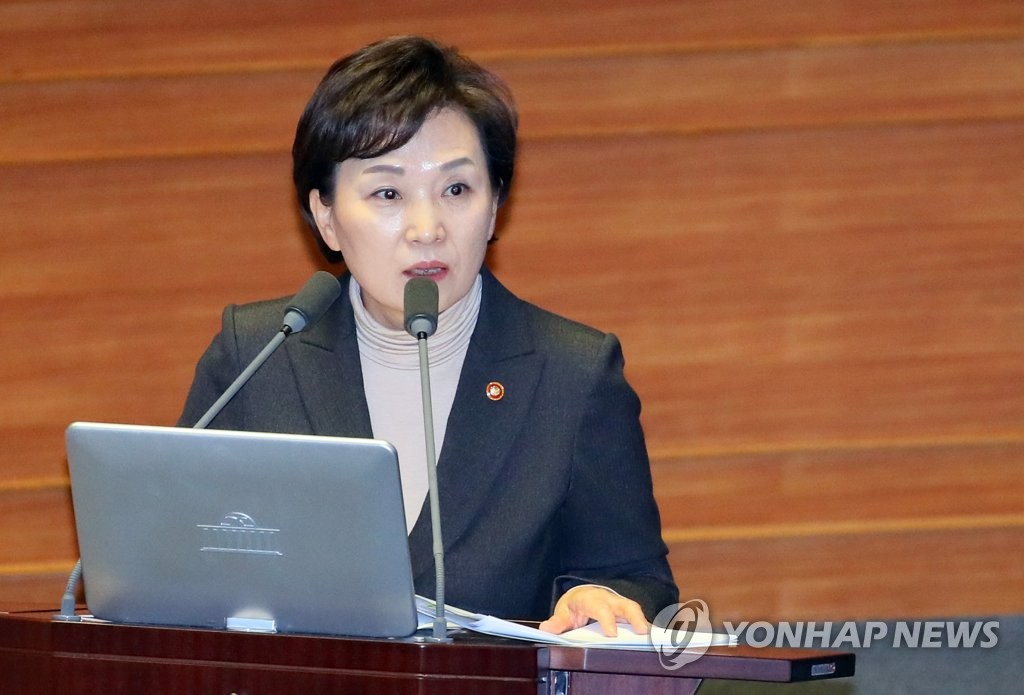- California Assembly OKs highest minimum wage in nation
- S. Korea unveils first graphic cigarette warnings
- US joins with South Korea, Japan in bid to deter North Korea
- LPGA golfer Chun In-gee finally back in action
- S. Korea won’t be top seed in final World Cup qualification round
- US men’s soccer misses 2nd straight Olympics
- US back on track in qualifying with 4-0 win over Guatemala
- High-intensity workout injuries spawn cottage industry
- CDC expands range of Zika mosquitoes into parts of Northeast
- Who knew? ‘The Walking Dead’ is helping families connect
Audit agency finds manipulation of key economic data by 22 high-ranking officials under Moon gov’t
The state audit agency announced Friday that high-ranking officials, including a former land minister and key presidential aides from the preceding Moon Jae-in government, manipulated various economic data for several years, allegedly in support of its key economic and real estate policies.
The Board of Audit and Inspection (BAI) disclosed the interim results of its six-month investigation and has formally requested the prosecution to investigate 22 former government officials, including all four former presidential chiefs of staff for policy — Jang Ha-sung, Kim Su-hyun, Kim Sang-jo and Lee Ho-Seung — as well as former Land Minister Kim Hyun-mi.
The BAI concluded that the presidential office and the land ministry exerted undue pressure on agencies responsible for statistics, compelling them to manipulate official data on income, employment and housing prices since the Moon administration assumed office in May 2017.

Notably, curbing surging housing prices was one of Moon’s policy agendas, leading the land ministry to implement a series of drastic yet contentious real estate measures, including imposing high taxes on those owning more than one home.
Despite the government’s efforts to combat what it labeled as real estate speculation, housing prices skyrocketed. The BAI asserts that the former government officials distorted key economic indicators to create the appearance of policy success.
In detail, Jang, who is considered the architect of Moon’s income-led growth policy, ordered prior reports or revisions before key statistics were compiled and announced, the BAI said.
A relevant law bans statistics agencies from providing data to other government agencies prior to the announcement to prevent undue influence during the compiling process.
The BAI determined that Jang also pressured the Korea Real Estate Board (REB), an affiliate of the land ministry, to intentionally skew samples and use manipulated survey data in publishing real estate price trend reports.
“Cheong Wa Dae and the land ministry exerted undue pressure on statistical activities of the REB at least more than 94 times from 2017 to 2021 to tamper with the statistical numbers,” Choi Dal-young, a BAI senior official, said during a press briefing.

The BAI ruled that such illegal acts of leaking data and manipulation had continued by his successors, Kim Su-hyun and Kim Sang-jo, and Lee.
During all five years of the Moon administration, the REB data indicated housing prices in Seoul rose by 19.5 percent. However, data compiled by a local bank suggested the prices soared as much as 62.2 percent.
“After June 2019, when (housing) sale prices began rising again, the land ministry pressured the REB more strongly by inducing the resignation of an REB chief or making comments, such as blowing up the agency or the budget,” Choi said.
During an interpellation session at the National Assembly in 2020, former Minister Kim said that housing prices rose by merely 11 percent during the Moon administration, citing REB data.
Decreased income for low-income households was another controversial issue in light of Moon’s income-led growth initiative, which included a sharp hike in the minimum wage.
The BAI ruled that the former presidential officials intervened in statistical affairs by ordering that major economic statistics released by Statistics Korea be doctored.
In detail, Statistics Korea’s household income trend survey for the first quarter of 2018 showed that the income gap widened and the total distribution ratio for disposable income, a key barometer of earnings equality, worsened.
The reports at the time triggered criticism that the income of the poor had further decreased and the distribution gap had widened despite Moon’s income-led growth initiative.
The BAI said Statistics Korea then changed its statistical survey method by adding a weighted value, in an attempt to produce what looked like improved data on income distribution.

The presidential office denounced the case as a “shocking breach of national discipline.”
“Those responsible are expected to be uncovered, as the BAI has requested a prosecution investigation,” said a presidential official on the condition of anonymity.
The ruling People Power Party (PPP) also strongly criticized the massive tampering, calling for a thorough prosecution investigation to uncover the final decision-maker.
“The state power committed unimaginable statistical manipulation by tampering with statistics and creating fabricated news to deceive the public,” Rep. Park Dae-chul, the PPP’s chief policymaker, said.
Statistics Korea apologized and pledged to prevent similar cases going forward.
“To prevent the recurrence of such events, we will strive to reinforce neutrality and transparency in all stages of compiling and making public national statistics data to earn people’s trust,” the statistics agency said.
Meanwhile, a forum of former key presidential officials and ministers who served under the Moon government dismissed the BAI investigation as fabricated.
“The truth of this result lies not in the statistical manipulation of the previous government but in the present government’s audit manipulation,” Saeujae said in a press release.











